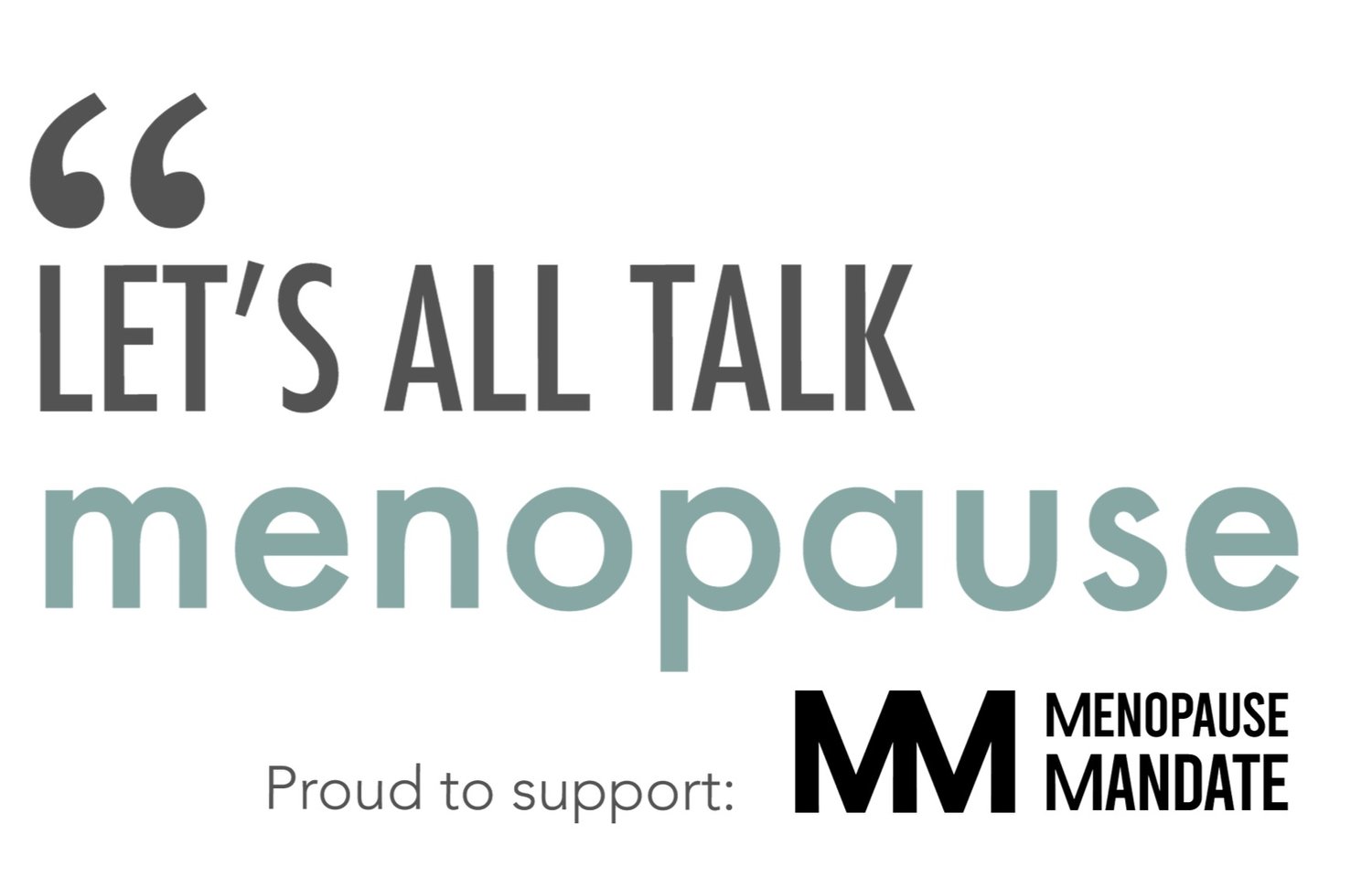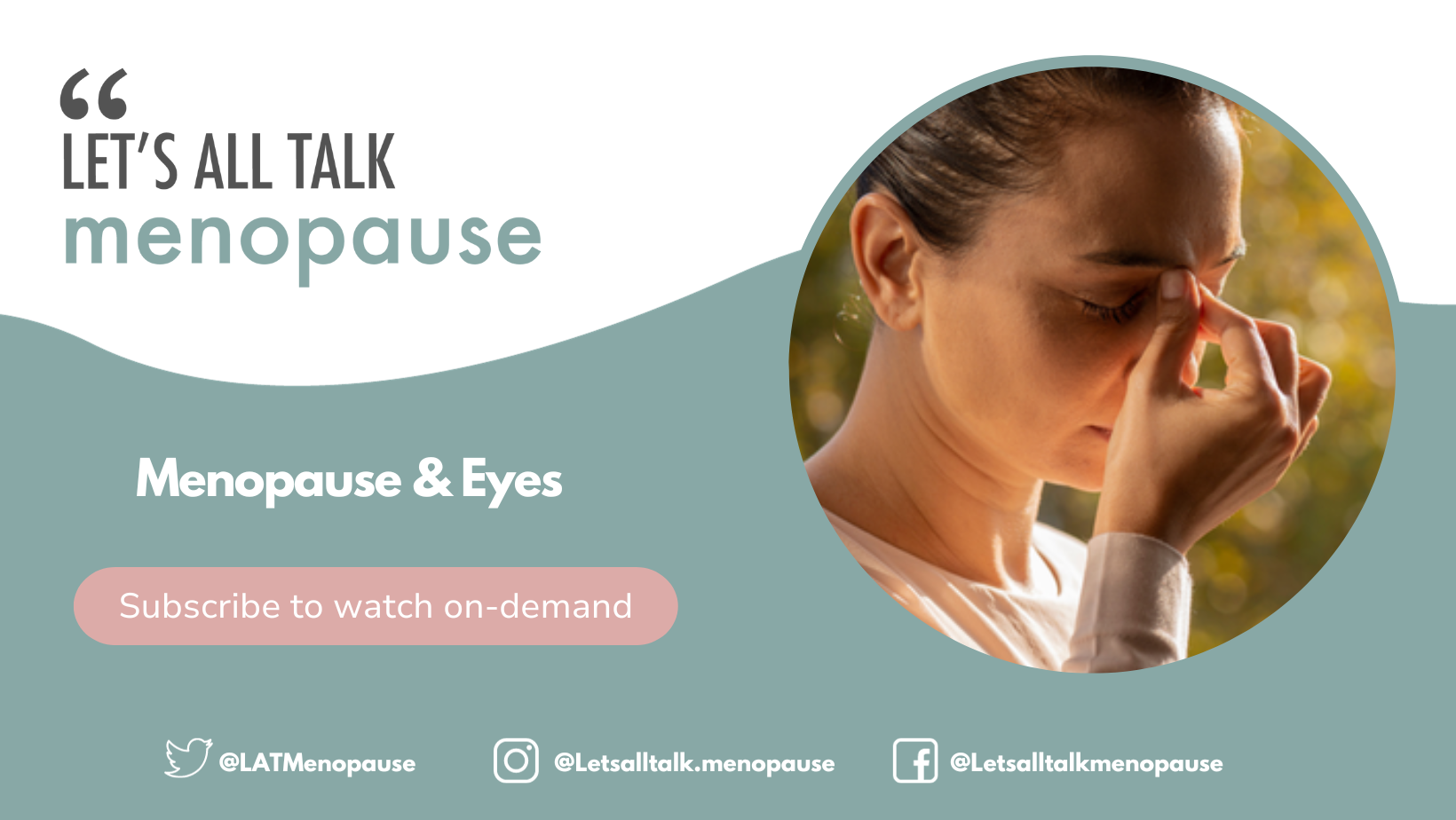Get your eye pressure checked
We were delighted to be joined by Dr Meg Minasian to discuss Menopause and Eyes. Dr Meg is a consultant ophthalmic surgeon, but she has recently moved into aesthetic medicine and has co-founded the MW clinic in London.
Now… eyes, in relation to menopause, are rarely discussed. In fact, it is almost the last thing you’d think of, if you’re struggling with your eye health.
But, it’s actually quite surprising how many women suffer from poor eye health.
62% of women experience dry eye, in relation to their menopause, and interestingly, the survey showed that only 16% are aware that it is a part of the menopause.
Dr Meg says she sees people where eye problems are literally consuming their lives. It’s a constant irritation that you really can't escape from as it’s affecting one of your critical senses.
“It can really dominate and make lives extremely difficult. So, it's a huge problem, and luckily it's something that we can treat, which is brilliant.”
The Biology
Your tear film is made up of three layers. There's a very thin inner layer, which is mucus and sits adherent to the cornea. Then there's a thicker layer, which is essentially water. And then there's a thin top layer, the outermost layer, which is fat. It’s this lipid fat layer that prevents the watery layer from evaporating in between blinks; and that's the most critical part when we're talking about menopause because about two thirds of dry eye is related to a deficiency of that top fatty layer of your tears, and the reason for that is because we are very prone, with the hormonal changes during menopause, to get inflammation along the eyelid margin. Instead of it being lovely, thin oil that can release out and cover the tear film, they become rather thick and viscous, and they just essentially get stuck inside. So, the aqueous layer, the watery layer of your tears is just evaporating between blinks, and there's no protection for that.
The mantra is heat, massage, clean and repeat. You need to repeat that procedure two or three times, ideally, during the day and every day.
Most people use eye drops, but that can really compound the problem because a lot of eye drops have preservatives in them, particularly one preservative - benzyli chloride. It's highly toxic to the corneal epithelium, and it tends to make the situation much worse. You can buy simple eye ointments over the counter that do not contain this preservative in.
Glaucoma
“For women who experience their menopause before they are 45 it has been shown that there is double the risk of developing glaucoma than in women who experience menopause later. So, if you were under 45 when you went through menopause, definitely get your eye pressure checked and even more so if you have a family history.”
Glaucoma is a condition where typically, pressure is raised in the eye and you get damage to the optic nerve and a loss of your field of vision. The thing about glaucoma is that it's a silent disease. There are no symptoms for it. And so, for somebody with a direct family history, it’s really important to have your eye pressure checked and even more so if you're in that group for menopause.
Saggy eyelids in Menopause
There are plenty of things you can do now, non-surgically. It certainly starts with just helping yourself with lifestyle - good diet, hydration, and reducing risk factors like ultraviolet light which is the most ageing. In terms of treatments, absolutely incorporate a good skincare routine with things specifically formulated for the eye. Dr Meg mentions light therapy for improving eye bags because they're addressing the root cause; so there are plenty of things you can do.
EYE Vitamins
We do have definite evidence to say that high doses of Vitamin C, Vitamin D supplementation and Omega 3, improve the health of your eye, and especially in menopause. But there are also other things to include in your diet not just for your general eye health but as you age as well. Particularly antioxidants like vitamin E and just having a rainbow diet. Colourful foods contain these antioxidants and are specifically good for your retinal health.
Dr Meg says her main takeaway from this session would be that:
“Things that often can be really impactful are things that you can do yourself. So, your diet, your lifestyle, and the way you look after your eyes or your skin. If you just do small things yourself, know they are significant, they can really help because prevention is better than cure.”
To watch Dr Meg’s talk again, head here – worth a watch if you’ve been struggling with poor eye health or have a history of it.

